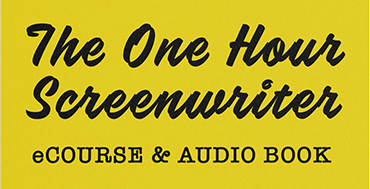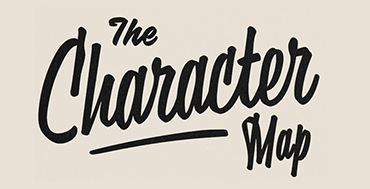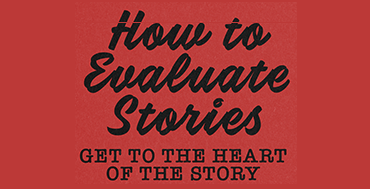Tom Stoppard’s TV Project
Best known for his film and theatre credits, Oscar-winning writer Sir Tom Stoppard tells Michael Pickard how he came to adapt four novels set before and during the First World War into an upcoming BBC/HBO television drama.
“I’m simply not in the television world,” admits Sir Tom Stoppard (left), the renowned British playwright and screenwriter. Although he has been a celebrated writer for the theatre and cinema – he won an Oscar in 1998 for Shakespeare in Love – the small screen has escaped his attention for more than 30 years.
Next year, however, UK pubcaster BBC2 and HBO will air Parade’s End (6×44′), Stoppard’s adaptation of four related novels written by Ford Madox Ford during the 1920s.
The story, played out between 1912 and the end of the First World War, centres on a love triangle between an English aristocrat, his beautiful but cruel wife and a young suffragette with whom he falls in love.
“I wasn’t thinking about coming back to TV or not coming back to TV,” says Stoppard. In fact, he says, he was preparing to write a new play for the stage when Damien Timmer, joint MD of UK production house Mammoth Screen, asked him to look at Ford’s novels.
That was three years ago. This September, a cast guided by Bleak House director Susanna White went on location in England and Belgium as they began committing his scripts to film. Mammoth is producing the show for the BBC in association with HBO Miniseries, Trademark Films, BBC Worldwide and Lookout Point. “Damien had an idea that the novels would make good TV,” says Stoppard. “I read it and thought it was absolutely wonderful. I was really bowled over by it.”
The first three episodes of Parade’s End are based on Ford’s first novel in the series, entitled Some Do Not, while the other three – No More Parades, A Man Could Stand Up and Last Post – will make up the second half of the drama.
“The book has got a very interesting, non-linear structure,” Stoppard says. “It feels like a Russian doll and is quite complicated so I unravelled it and told the story chronologically. I could not do a Russian doll structure. The audience would have had a hard time working out where they were.”
Stoppard is no stranger to working for the big screen, having co-written Terry Gilliam’s Brazil and adapted Robert Harris’s novel Enigma for the 2001 film, as well as co-writing Shakespeare in Love. However, Parade’s End was never considered as a film because “you couldn’t boil it down to a couple of hours. I wouldn’t like to,” he said.
One aspect of the Parade’s End pre-production process that the writer particularly enjoyed were the rehearsals, which gave him an opportunity to run through his scripts with the cast – which includes Sherlock star Benedict Cumberbatch and Vicky Christina Barcelona actress Rebecca Hall. The series is due on air in 2012 although a transmission date has yet to be confirmed.


Best known for his film and theatre credits, Oscar-winning writer Sir Tom Stoppard tells Michael Pickard how he came to adapt four novels set before and during the First World War into an upcoming BBC/HBO television drama.
“I’m simply not in the television world,” admits Sir Tom Stoppard (left), the renowned British playwright and screenwriter. Although he has been a celebrated writer for the theatre and cinema – he won an Oscar in 1998 for Shakespeare in Love – the small screen has escaped his attention for more than 30 years.
Next year, however, UK pubcaster BBC2 and HBO will air Parade’s End (6×44′), Stoppard’s adaptation of four related novels written by Ford Madox Ford during the 1920s.
The story, played out between 1912 and the end of the First World War, centres on a love triangle between an English aristocrat, his beautiful but cruel wife and a young suffragette with whom he falls in love.
“I wasn’t thinking about coming back to TV or not coming back to TV,” says Stoppard. In fact, he says, he was preparing to write a new play for the stage when Damien Timmer, joint MD of UK production house Mammoth Screen, asked him to look at Ford’s novels.
That was three years ago. This September, a cast guided by Bleak House director Susanna White went on location in England and Belgium as they began committing his scripts to film. Mammoth is producing the show for the BBC in association with HBO Miniseries, Trademark Films, BBC Worldwide and Lookout Point.
“Damien had an idea that the novels would make good TV,” says Stoppard. “I read it and thought it was absolutely wonderful. I was really bowled over by it.”
The first three episodes of Parade’s End are based on Ford’s first novel in the series, entitled Some Do Not, while the other three – No More Parades, A Man Could Stand Up and Last Post – will make up the second half of the drama.
“The book has got a very interesting, non-linear structure,” Stoppard says. “It feels like a Russian doll and is quite complicated so I unravelled it and told the story chronologically. I could not do a Russian doll structure. The audience would have had a hard time working out where they were.”
Stoppard is no stranger to working for the big screen, having co-written Terry Gilliam’s Brazil and adapted Robert Harris’s novel Enigma for the 2001 film, as well as co-writing Shakespeare in Love. However, Parade’s End was never considered as a film because “you couldn’t boil it down to a couple of hours. I wouldn’t like to,” he said.
One aspect of the Parade’s End pre-production process that the writer particularly enjoyed were the rehearsals, which gave him an opportunity to run through his scripts with the cast – which includes Sherlock star Benedict Cumberbatch and Vicky Christina Barcelona actress Rebecca Hall. The series is due on air in 2012 although a transmission date has yet to be confirmed.

Write your screenplay in one hour a day. Laurie breaks down the screenwriting process into clear daily steps. Based on Laurie’s acclaimed UCLA Masters in Screenwriting course.
VIEW IN SHOP


Create a visual map for a character’s emotional journey. Pull stories from character rather from rote story structure beats. Some of the largest international media companies, use this in story and character development.


A clear concise guide for writers and producers to have by their side as they embark on a project. It gives a really vital reminder of what is key for story success.

No comment yet, add your voice below!